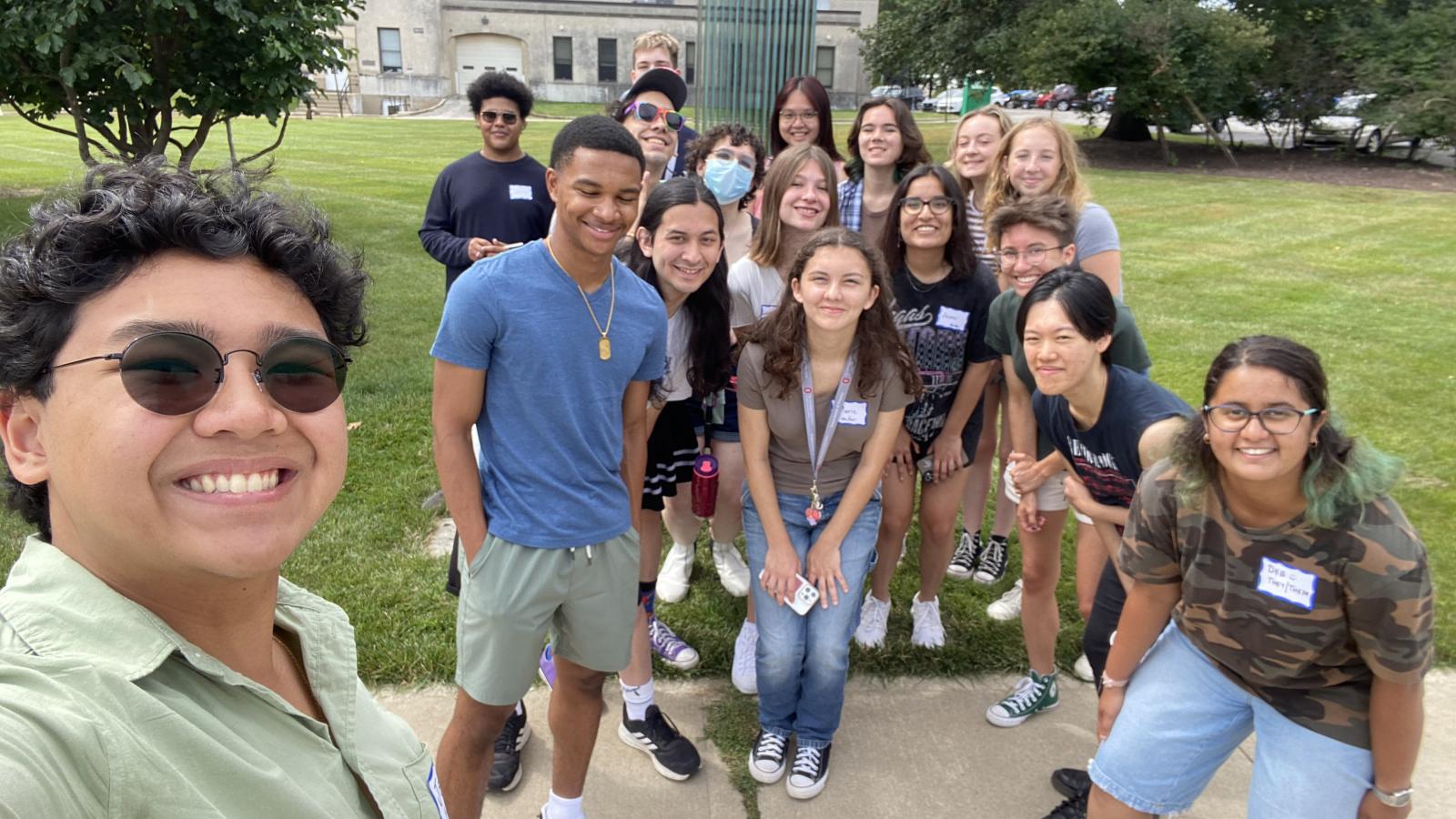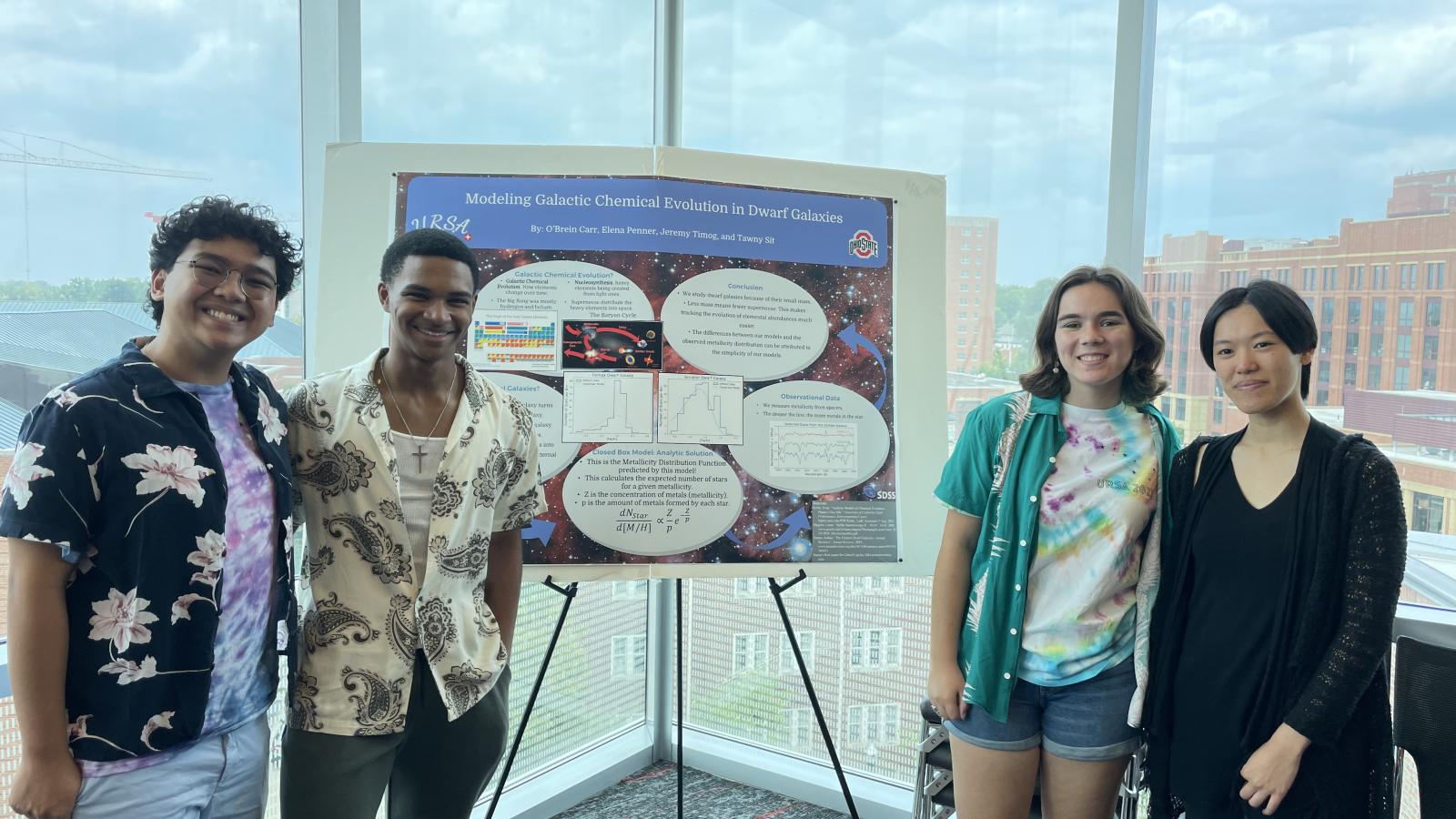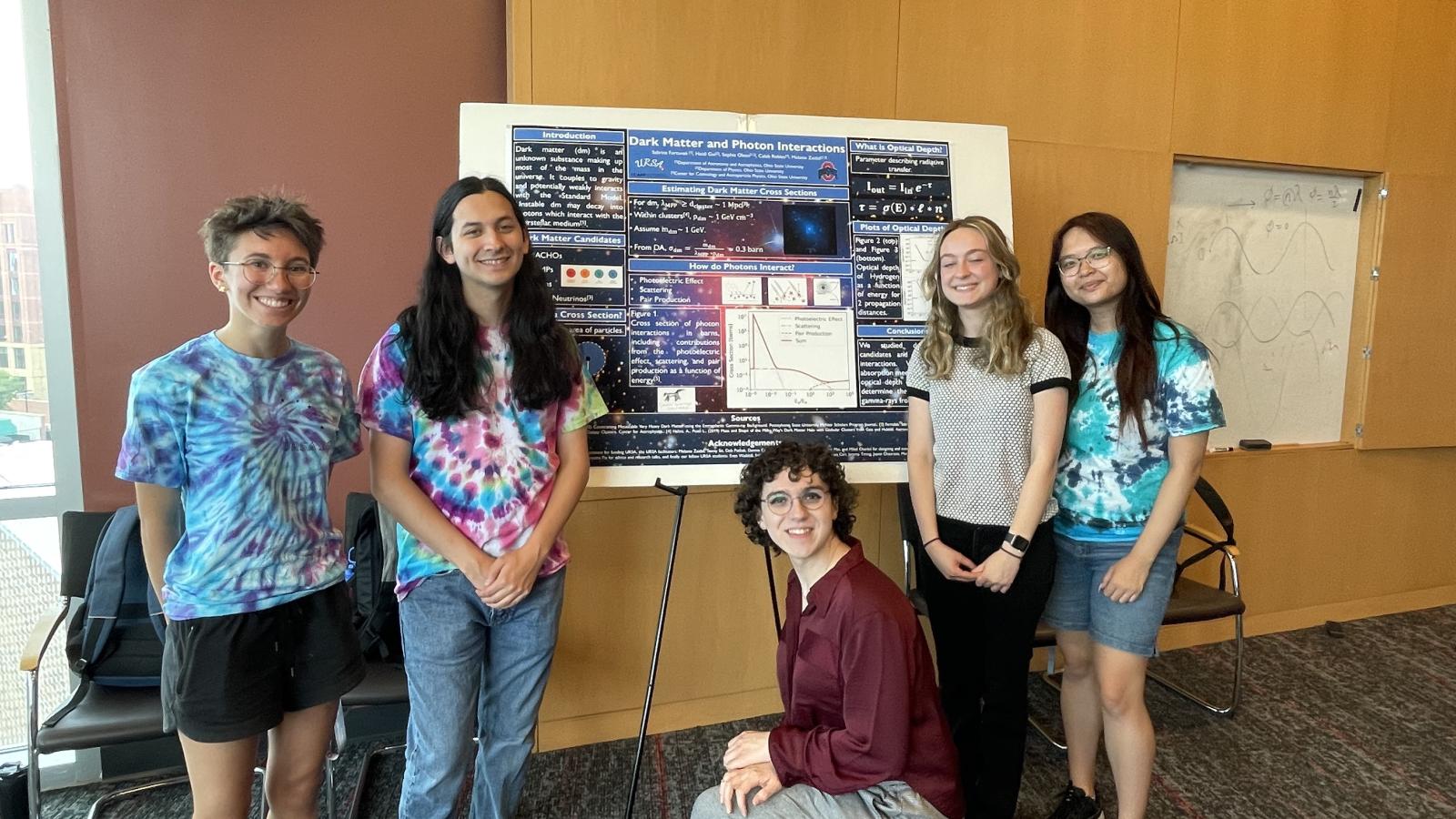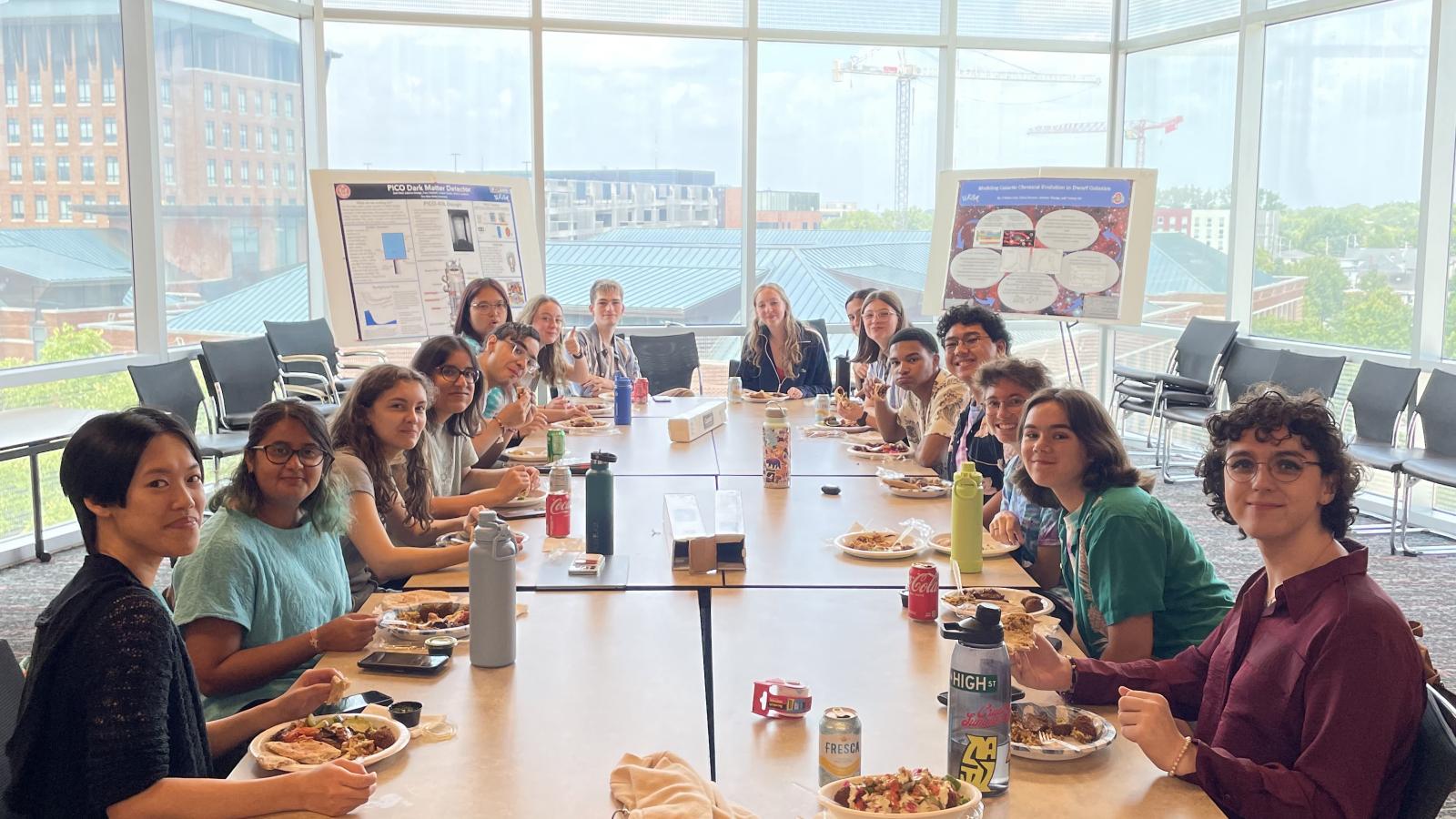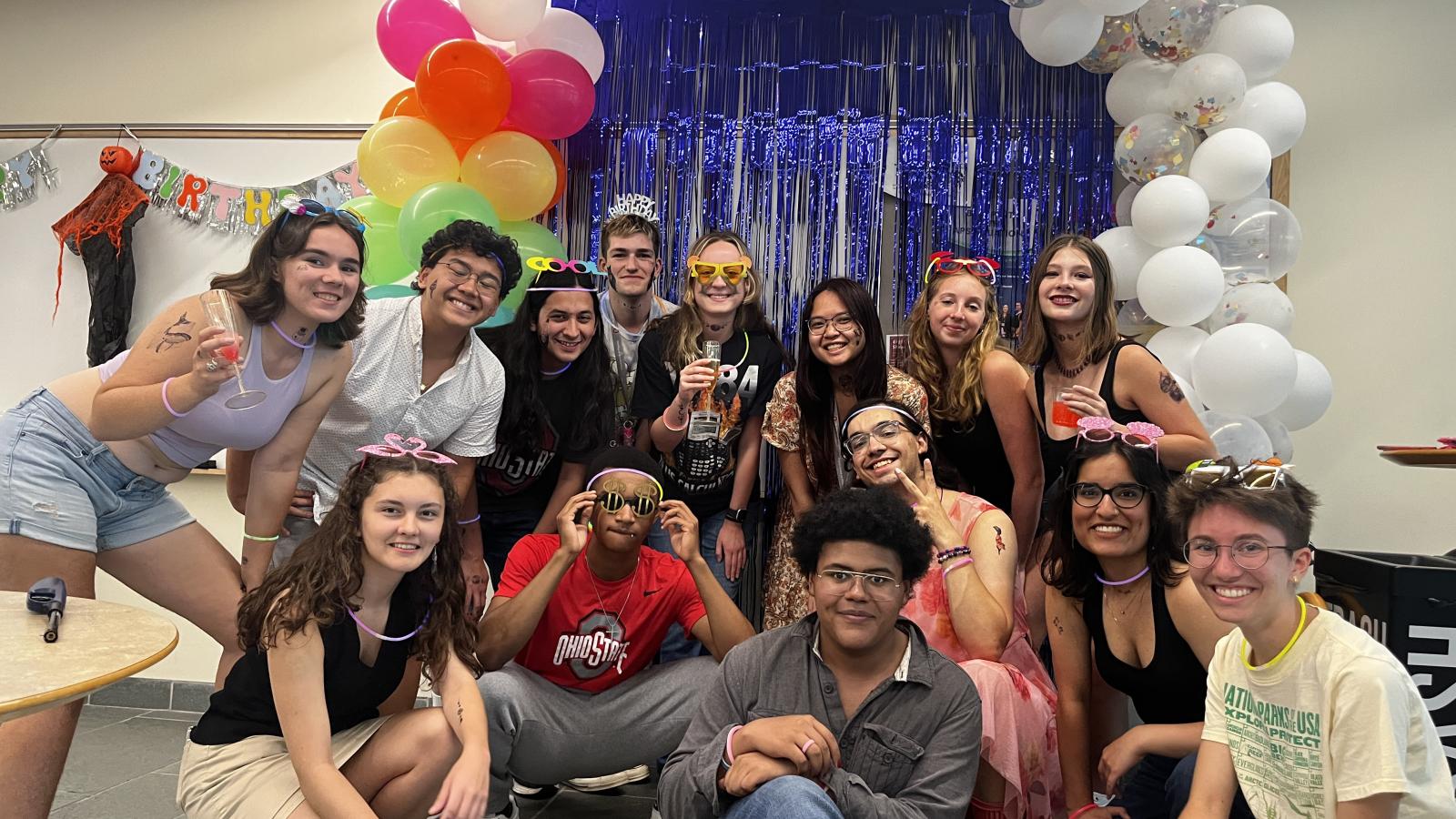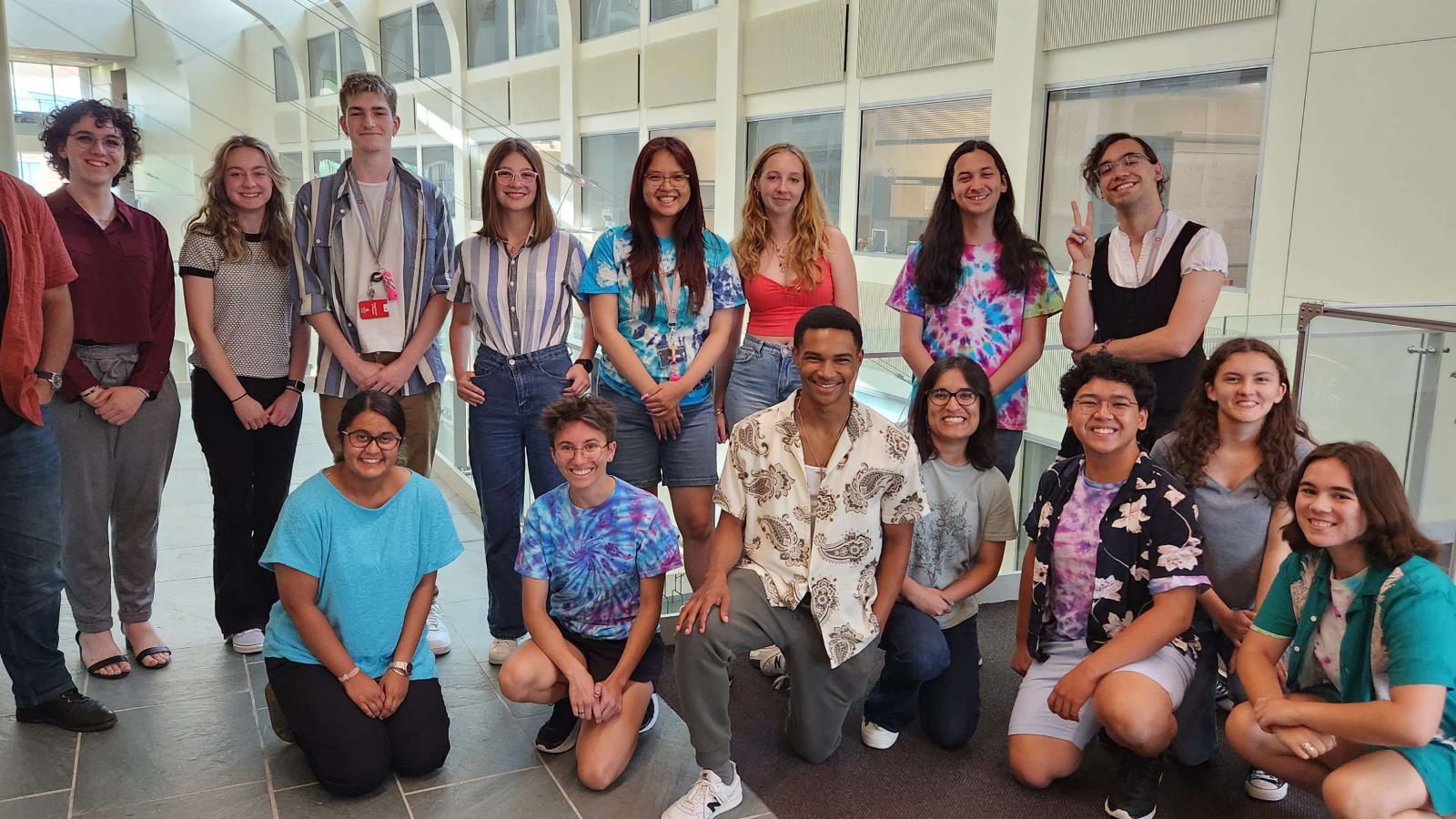This year, new heights were reached for the Polaris program. Run by graduate and undergraduate students in the Departments of Physics and Astronomy, Polaris aims to increase retention of students from underrepresented and nontraditional backgrounds in physics and astronomy by providing mentorship, community and support early in students’ experience at Ohio State. This occurs through two major programs: the Polaris Mentorship Course and Polaris’s Undergraduate Residential Summer Access (URSA) program.
The Mentorship Course covers content from overcoming imposter syndrome to designing dynamic presentations. Each student also collaborates with a graduate student mentor on a mini research project. Through the curriculum design, the course develops students’ science identity; through the community built between peers and mentors, the course develops students’ sense of belonging.
URSA students arrive on campus two weeks early and are immediately introduced to a cohort of peers with whom they connect in both interests and background. One reported, “URSA personally impacted me on a very deep level because of the connection we all shared before the program even began...I felt a sense of community.” Students participate in lessons in astrophysics and metacognition, learn basic coding skills, engage in community-building social activities and produce a group research poster at the end of the program.
In 2022-2023 the Mentorship Course reached a record of 30 students and was split into two lecture sections to accommodate the size, while URSA enrolled 14 students. A study conducted by the Department of Physics showed significant increase in retention of underrepresented STEM students if they were involved in Polaris. Program alumni consistently cite involvement with Polaris as an important influence in their retention. “Polaris was an invaluable part of my undergraduate experience at Ohio State... I give Polaris a lot of credit for giving me the confidence and community essential to succeeding in college," said one Polaris alum.
The impact of Polaris on diversity, equity, inclusion and accessibility of physics and astronomy is significant and has only increased since its inception. Members of the team continually strive to reach even more students by developing new programming and bolstering already-successful ones. As an independent organization, Polaris depends on contributions from supporters in the Departments of Physics and Astronomy, the College of Arts and Sciences and our Ohio State community. If you are interested in supporting Polaris to continue its mission of creating and maintaining an inclusive learning community, you can contact Polaris at osupolaris@osu.edu.

